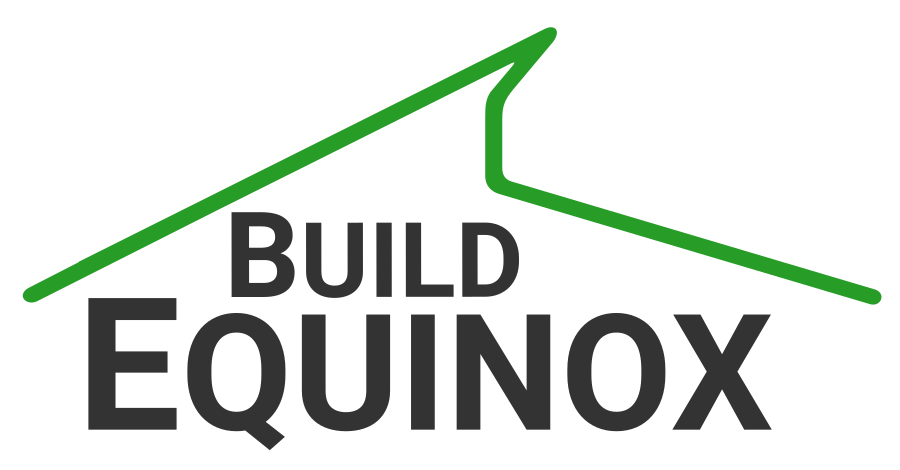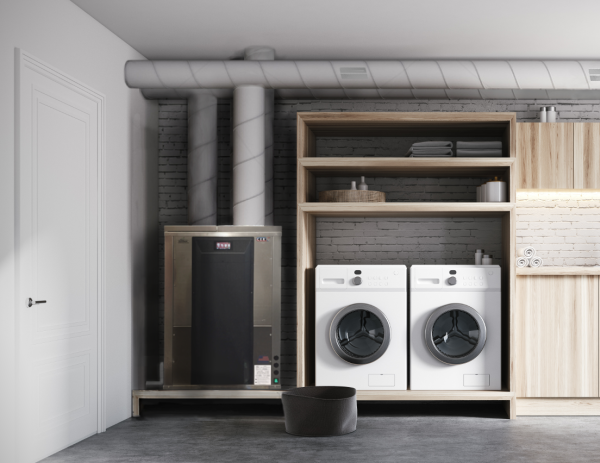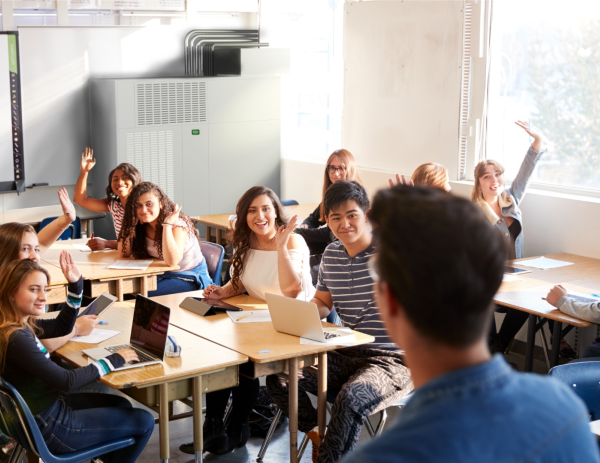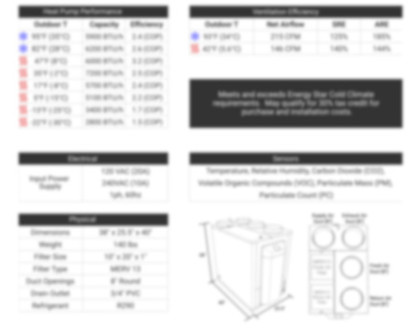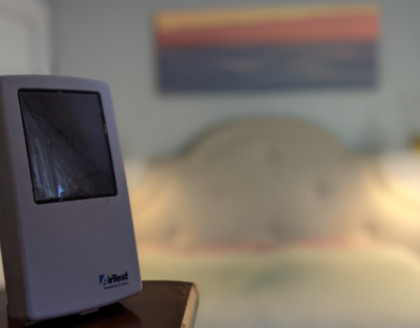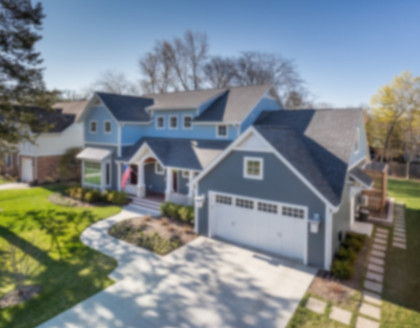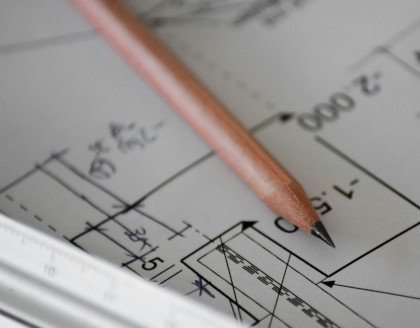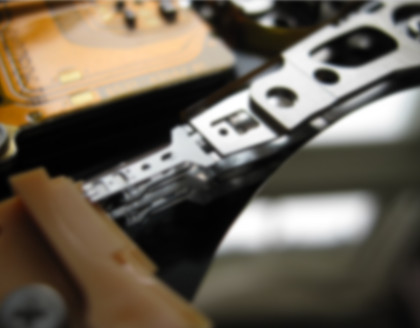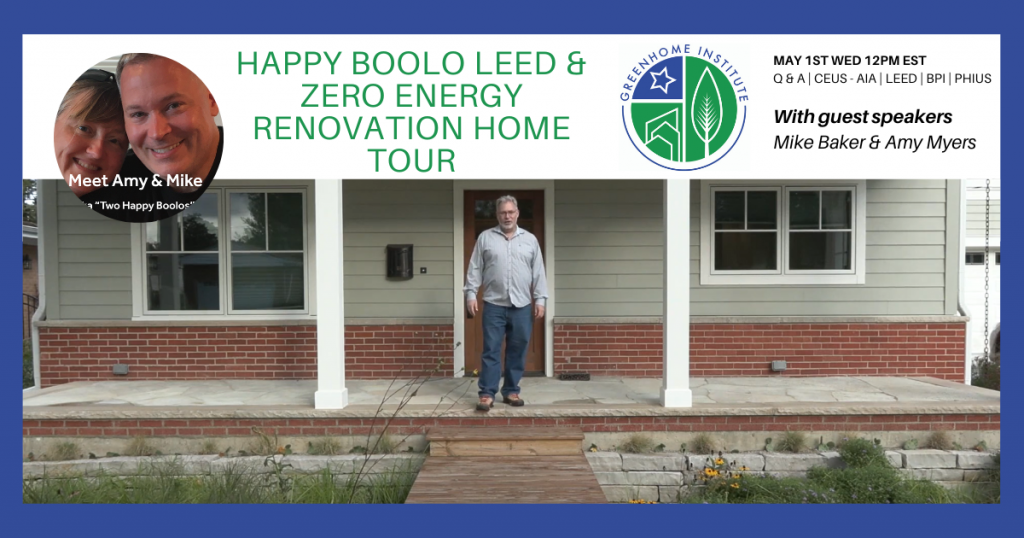
Wed, May 1st, 2024 11:00 AM - 12:00 PM CST
Event has passed - stay tuned for the next!
Recently, Amy Myers and Mike Baker renovated their 1964 split-level home and achieved LEED Platinum and GHI Zero Energy Certification by focusing on multiple sustainability goals, such as energy efficiency, an airtight thermal envelope, a solar PV system, an air-sourced electric heat pump for heating/AC, mechanical ventilation, dehumidification, rainwater catchment, and native and adaptive rain garden plantings.
Now that they have been living in this improvement for a while, they want to invite you to their home for a virtual tour and share some lessons learned on the project to help you do this, too.
Continuing Education Units (CEUS) submitted 1 hour in*
- Green Business Certification Inc. (GBCI)
- LEED Accredited Professional in Homes (APH)
- Building Performance Institute (BPI) NonWholeHouse
- Submitted for American Institute of Architects - AIA (HSW)
- Certified Green Professional (NARI & CGP)
- Certified GreenHome Professional (CGHP) Pillar(s): Energy, Health, Materials, Water, Place
- American Institute of Building Designers (AIBD)
- State Architect / Builder License may be applicable
- Building Science Institute (BSI) Verifier
- Passive House Consultant US (CPHC)
- Society of American Registered Architects (SARA)
Speakers
Amy Myers and Mike Baker have lived in Arlington Heights since 1998. They love their neighbors, their street, and their whole town, which have felt welcoming since day one. They credit Drury Lane and Arlington Heights with inspiring them to undertake their Happy Boolo Project: transforming their 1964 split level into a highly functional and sustainable home that is a gathering place for community and a cozy retreat for the two of them. Mike played a significant project management role throughout the project, more than a traditional homeowner may, giving a unique perspective both as the homeowner and LEED GC.
Lessons Learned
Understand that sustainable home renovations can improve indoor air quality and reduce exposure to harmful chemicals, leading to better health outcomes. Where does this tie into LEED V4.1 Residential Credit EQ Ventilation?
Analyze potential hazards and safety risks associated with each aspect of your renovation project to ensure that the final result is sustainable and safe.
Introduce sustainable design elements and green building practices to reduce energy consumption, minimize waste, and save money in the long run while supporting the health and safety of your household. How does this connect to LEED V4.1 Residential Credit EA Annual Energy Performance?
Articulate how sustainable home renovations can extend beyond the shell work and connect with the outdoors through the lens of LEED V4.1 Residential Credit Rain Water Management.
